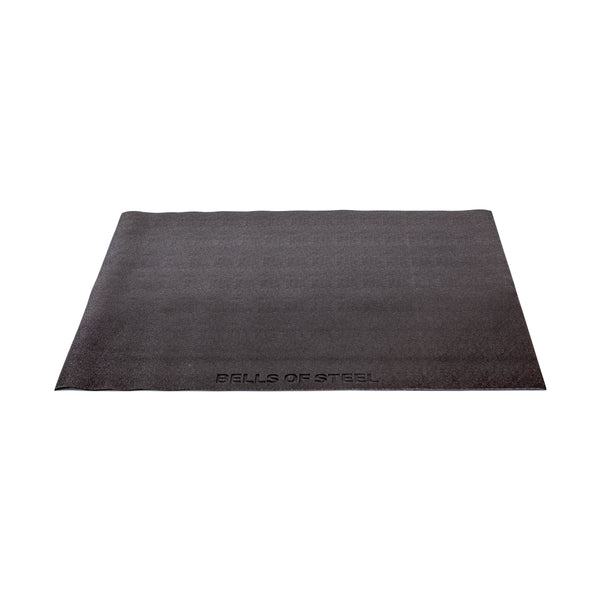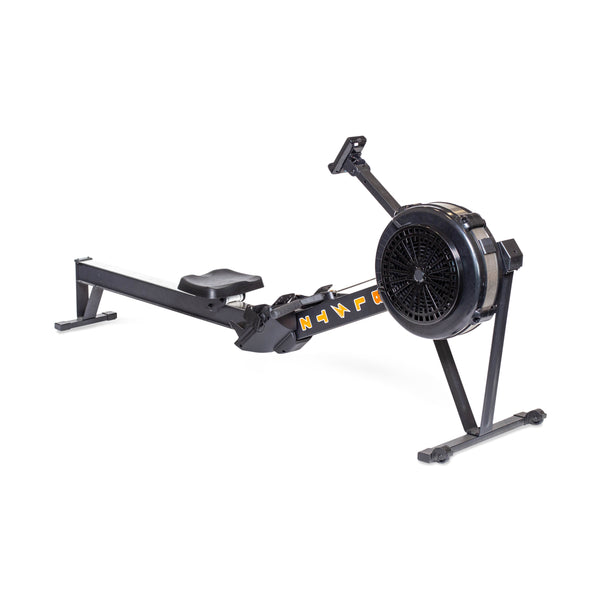If you're a home gym owner, you've likely considered adding an air rowing machine to your arsenal of fitness equipment. These machines offer an excellent full-body workout, but one question that often pops up is: "How noisy are air rowing machines?"
Well, don't worry; we're here to unravel the mystery behind the sounds of your rowing experience.
Air rowing machines operate on a simple yet effective principle: resistance is generated by a spinning flywheel with fan blades that slice through the air. As you row, the resistance increases with your effort, mimicking the feeling of rowing on water.
But here's the catch (pun intended): those spinning blades create noise, and the faster you row, the louder it gets—typically a notable wooshing sound.
The concern about noise is entirely understandable. After all, who wants to disturb the entire household while they're trying to break a sweat?
Here are some reasons why people worry about the noise level of air rowing machines:
- Disturbing the Peace: Whether you live with family, roommates, or sensitive-eared pets, excessive noise can disrupt their peace and quiet. It's hard to maintain your "zen" when you're creating a hurricane in the living room.
- Neighborhood Nuisance: If your home gym is close to your neighbors or you live in an apartment, you might inadvertently become the noisiest neighbor on the block. Nobody wants that reputation!
- Late-Night Workouts: For night owls or early birds, the noise issue becomes even more critical. You don't want to wake up the whole house during your midnight rowing sessions.
If these issues aren’t a concern for you, an air rower should be fine. However, it’s important to look at the issue as a whole. Before you ditch the idea of an air rower altogether, let's put the noise factor into perspective by comparing it to other types of rowing machines.
Air Rowers
Air rowers, as we've discussed, produce noise due to the spinning fan blades. The faster and harder you row, the louder they get. However, the noise isn't unbearable, and there are ways to mitigate it. We’ll get into those later.
Water Rowers
Water rowing machines use a tank of water to provide resistance, which results in a more tranquil rowing experience. They offer a serene, soothing sound as you row, simulating the feel of rowing on a calm lake. But they still generate some noise, especially when you're filling or emptying the tank—and the splashing can be notable during an intense workout.
Magnetic Rowers
Magnetic rowers are often considered the quietest of the bunch. They use magnets to create resistance, resulting in minimal noise. Now, let's dive deeper into why air rowers have their own set of advantages over magnetic rowers, noise notwithstanding.While magnetic rowers are indeed quieter, air rowers come with several benefits that may make the noise worthwhile:
1. Full-Body Workout Intensity
Air rowers provide a dynamic and more challenging workout. The resistance increases as you row harder and faster, making them ideal for high-intensity interval training (HIIT) and strength building.
2. Realistic Rowing Experience
Air rowers closely mimic the feel of rowing on water. This realism can make your workouts more engaging and satisfying.
3. Calorie Burn
Due to the dynamic resistance, air rowers can help you burn more calories in a shorter time, making them a fantastic choice for those looking to shed pounds efficiently.
4. Durable and Low Maintenance
Air rowers are known for their durability and low maintenance requirements, ensuring your investment lasts for years.
In the end, while magnetic rowers excel in providing a quiet workout environment, air rowers offer a more intense and versatile fitness experience.
If you're willing to embrace the hum of the fan blades, you'll discover that air rowers can take your fitness journey to new heights.Now that you know the advantages of air rowers, let's also explore some strategies to keep the decibels in check:
1. Cardio Machine Mats
Placing cardio machine mats under your machine can help dampen vibrations and reduce noise transmission to the floor.
2. Room Choice
Opt for a room with minimal foot traffic and noise-sensitive neighbors. If possible, choose a space with carpeted floors to absorb sound.
3. Noise-Canceling Headphones
Invest in a good pair of noise-cancelling headphones. You'll not only drown out the machine noise but also stay motivated with your favorite workout tunes.
4. Maintenance
Keep your air rower well-maintained. Lubricate moving parts regularly to minimize any squeaks or creaks.
5. Stick to Steady State When Possible
Row at a consistent pace rather than sporadic bursts of intensity. This can help reduce noise spikes.Before you decide to shush your rowing dreams, remember that air rowers come with a host of benefits that can outweigh the noise they produce. With a bit of creativity and consideration, you can row your way to fitness without creating a cacophony in your home gym.



